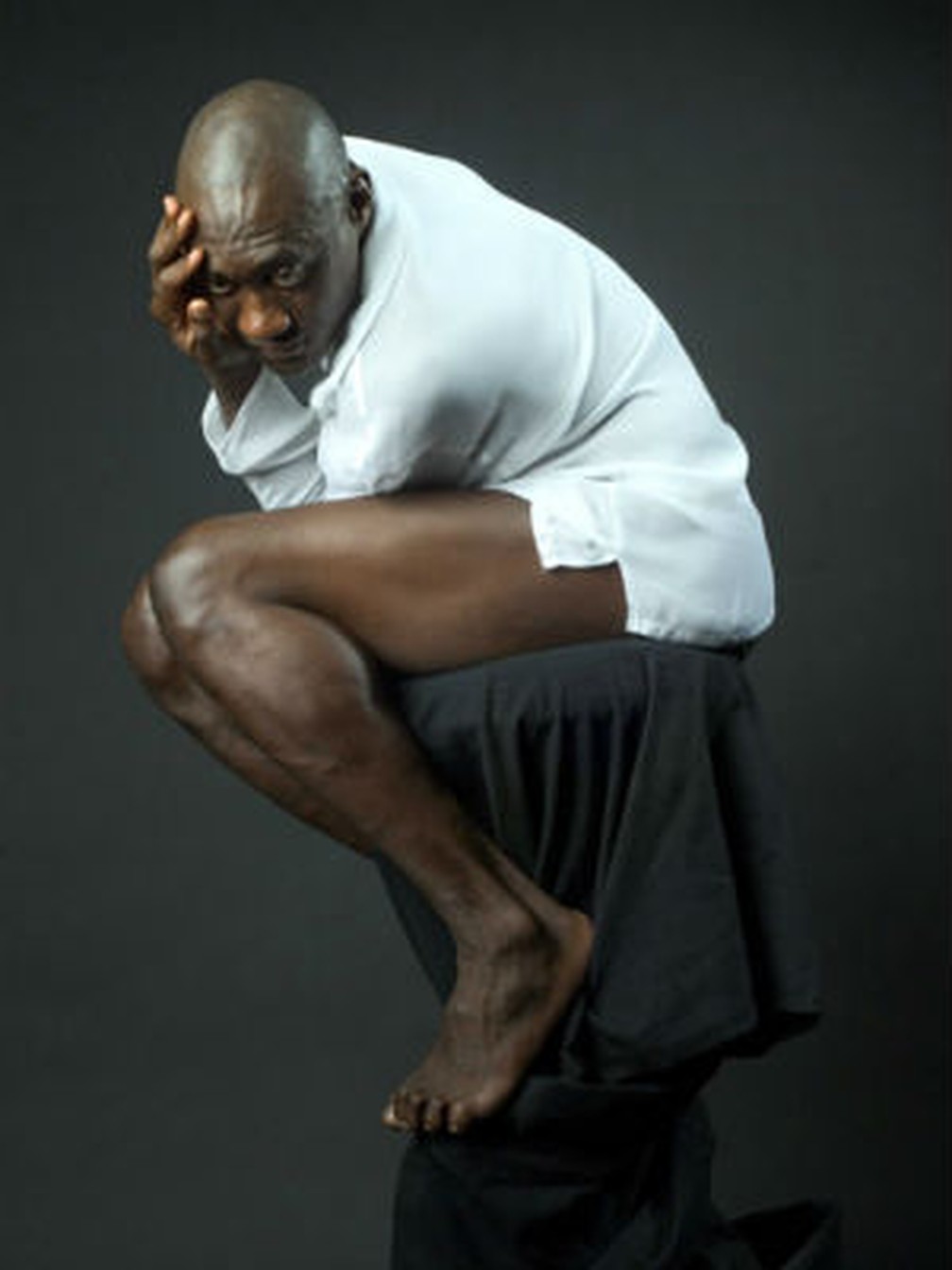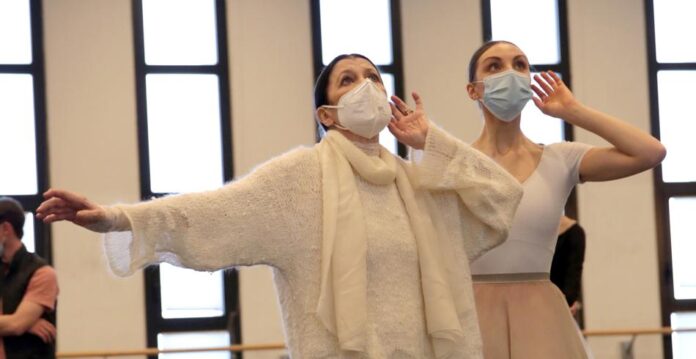During this spring, which finally comes to save us from the pandemic disease, many dance artists have left the scene, taking away many young and more mature protagonists.
The list of regrets is fed: Jean-François Duroure, who emerged in the fervor of the French nouvelle danse; Liam Scarlett, 35-year-old British promising choreographer; Luciana Novaro, former star and ballet director at La Scala; Violetta Elvin, Anglo-Russian, étoile both of the Royal Ballet and of La Scala; Jacques d’Amboise of the New York City Ballet.
But also, Ismael Ivo and Carla Fracci have gone. Both were universally loved and in love with Italy.
Ismael Ivo from Brasil to Venice
Ismael Ivo, Afro-Brazilian, born in 1955 in São Paulo, fell victim to the virus that hit hard in his country. His career as a plastic and incisive performer, passed through the Afro-American forge of Alvin Ailey in

New York, put him at the center of the European German-speaking stages with works such as Francis Bacon and Othello (1955) created with Johann Kresnik, key figure to the busiest Tanztheater. Attracted by the expressionism of Japanese Butoh, he was a creative interpreter in the Servants by Genet under the direction of Yoshi Oida. Moreover, Marcia Haydée, Brazilian world étoile at the head of the Stuttgart Ballett, wanted him in a show inspired by Maria Callas. Koffi Kôkô, standard-bearer of Africa worked alongside him.
Ivo’s Mapplethorpe (2002), which enchanted the public of Venice, is unforgettable. For this reason, he was called to direct the Biennale Danza from 2005 to 2012 with a global inter-cultural attitude, with an openness to all the dances of the planet, thanks to the experience gained at the helm of Impulstanz in Vienna, the flagship festival of which he was co-founder in 1984. Teacher for the youth, he had signed up for the college-Arsenal of the Oxygen Dance, Babylon. The third Paradise, The Waste Land, Library of the body.
Carla Fracci from Milan to the world
On the other hand, Carla Fracci died because of an illness that she had fought in silence, working until the last days of her industrious life. Born in 1936, raised at La Scala, projected on the most famous and popular stages, including television, she had finally returned to “her” theater, to the ballroom, for a masterclass on Giselle, “the” ballet of an entire existence in which she had put body and soul into countless times with the greatest partners around the world. A final honor for the one who directed the company of Rome and Verona but dreamed in vain of directing the Milanese ball and forming a national company in her name.
Sono usciti di scena tanti artisti della danza in questa primavera che arriva a salvarci finalmente dal morbo pandemico, ma che ci ha portato via molti protagonisti, giovani e più maturi.
La lista del rimpianto è nutrita: Jean-François Duroure, emerso nel fervore della nouvelle danse francese; Liam Scarlett, 35enne promessa della coreografia britannica; Luciana Novaro, già stella e direttrice del ballo alla Scala; Violetta Elvin, anglo-russa, étoile dal Royal Ballet alla Scala; Jacques d’Amboise del New York City Ballet.
E ancora, se ne sono andati Ismael Ivo e Carla Fracci, amati universalmente, innamorati dell’Italia.
Ismael Ivo dal Brasile a Venezia
Ismael Ivo, afro-brasiliano, nato nel 1955 a San Paolo è caduto vittima del virus che ha colpito duro nel suo Paese. La sua carriera di performer, plastico e incisivo, passato per la fucina afroamericana di Alvin Ailey a New York, lo ha messo al centro dei palcoscenici europei di lingua tedesca con lavori come Francis Bacon e Othello (1955) creato con Johann Kresnik, personalità-chiave del Tanztheater più impegnato; attratto dall’espressionismo del Butoh giapponese Ivo fu interprete creativo nelle Serve di Genet per la regia di Yoshi Oida; Marcia Haydée, étoile mondiale brasiliana a capo dello Stuttgart Ballett, lo volle in uno spettacolo ispirato a Maria Callas, Koffi Kôkô, portabandiera dell’Africanità ha lavorato accanto a lui.
Indimenticabile il Mapplethorpe (2002) di Ivo che incantò il pubblico di Venezia. E proprio qui fu chiamato a dirigere la Biennale Danza dal 2005 al 2012 con un’attitudine inter-culturale globale, con un’apertura a tutte le danze del pianeta, forte dell’esperienza maturata alla guida di Impulstanz a Vienna, festival di punta del quale è stato co-fondatore nel 1984. Maestro per i giovani, aveva firmato per i college-Arsenale della Danza Oxygen, Babilonia. Il terzo Paradiso, The Waste Land, Biblioteca del corpo.
Carla Fracci da Milano al mondo
Carla Fracci invece se l’è portata via un male che aveva combattuto in silenzio, lavorando fino agli ultimi giorni di una vita operosa. Nata nel 1936, cresciuta alla Scala, proiettata sui palcoscenici più famosi come su quelli popolari, televisione compresa, era tornata finalmente nel “suo” teatro, in sala ballo, per una masterclass su Giselle, “il” balletto di tutta un’esistenza in cui aveva messo corpo e anima infinite volte con i più grandi partner in tutto il mondo. Un ultimo onore per colei che diresse la compagnia di Roma e quella di Verona, ma sognò invano di dirigere il ballo milanese e di formare una compagnia nazionale nel suo nome.








